A George school education is designed to open doors and keep them open as long as possible. Our academic program lets you chart your own path—one that is as challenging as it is customized to you. Graduation requirements are available here.
Chart Your Own Course
Course Selection
To find a course, please use the filter below.
Art History and AP Art History
The class exposes students to visual art history and provides an opportunity to delve into meaningful research. The course is organized into historical units from prehistoric times to the present. Skills taught include visual analysis, contextual analysis, comparison of artwork, artistic traditions, attribution of unknown work, “visual” art historical interpretations and challenges, and argumentation. As part of the course, students take field trips to art museums in Philadelphia, New York City, and Washington, DC. Students who intend to study an IB visual art or to pursue visual arts at the post-secondary level will benefit particularly from this course, though anyone with an interest in art, history, and research is welcome!
Students taking Art History (ARV160A) and AP Art History (ARV168A) meet at the same time, in the same classroom. Assignments and expectations are differentiated depending on a student's registration.
A summer assignment is required of those who opt for the AP version of the course, and any student who, as of November, is registered for the AP version of the course is required to sit for the AP exam.
Min-Max Credit Hours: 3.0-3.0
Prerequisite: B+ in an English class
Open to: 10, 11, 12
AP Art & Design: Drawing
The AP Studio Art Exam consists of a comprehensive portfolio that addresses two components: Sustained Investigation, and Selected Works. In the Sustained Investigation section, students develop an inquiry to guide their creative process. In this section, students submit fifteen digital images that demonstrate their investigation and works of art guided by their inquiry. In Selected Works, five actual works of art that demonstrate the highest quality are submitted by mail to the College Board. An ability to work independently on art projects is essential in this class. Students are required to maintain documentation of their work outside of class. Prior experience with a wide range of art materials is expected to showcase a quality portfolio. AP students are required to take an AP mod in the fourth or fifth term.
Min-Max Credit Hours: 3.0-3.0
Prerequisite: Departmental approval
Open to: 12
AP Art & Design: Photography
In this course, students prepare for the AP Art & Design exam while participating in the Advanced Photography 2 (ARP410E) or Advanced Photography 3 (ARP410F) class. A mod of Creative Transformation can replace one mod of Advanced Photography 2 or 3 as part of the AP Art & Design: Photography course.
Min-Max Credit Hours: 3.0-3.0
Prerequisite: Advanced Photography 1 (3 credits, A)
Open to: 12
AP Art & Design: Digital Imaging
In this course, students prepare for the AP Art & Design exam while participating in the Advanced Digital Imaging & Design 1 (ARP420D) or Advanced Digital Imaging & Design 2 (ARP420E) class.
Min-Max Credit Hours: 3.0-3.0
Prerequisite: Digital Imaging & Design (3 credits, A)
Open to: 12
AP Art & Design: Graphic Design
In this course, students prepare for the AP Art & Design exam while participating in the Advanced Graphic Design 2 (ARV510E) or Advanced Graphic Design 3 (ARV510F) class.
Min-Max Credit Hours: 3.0-3.0
Prerequisite: Advanced Graphic Design 1 (3 credits, A)
Open to: 12
AP Biology
This course prepares students for the AP Biology exam. Students investigate evolution, biochemistry, metabolism, and molecular biology. Topics are covered in detail and at a fast pace. Nightly homework typically includes reading a chapter in a college-level textbook, writing a lab report, or writing an essay. Occasional evening and/or weekend labs are required in order to fulfill AP lab expectations. Most labs are inquiry-based, requiring students to develop their scientific skills and work more independently. Students are required to complete a summer assignment in preparation for the class.
Taking the external AP Biology exam is a requirement of this course.
Min-Max Credit Hours: 3.0-3.0
Prerequisite: 3 credits of Chemistry (A) or Intensive Chemistry (B+), 3 credits of Intensive Biology (B+) and Biotechnology
Open to: 11, 12
AP Chemistry
This course prepares students for the AP Chemistry exam. Students are assumed to have a strong understanding of topics taught in a first-year chemistry course. In addition to studying foundational concepts in more detail, students learn acid-base chemistry, spectroscopy techniques, relationships between macroscopic and microscopic properties, kinetics, equilibrium, oxidation-reduction, electrochemistry, and standard lab procedures. This is a fast-paced course with a significant laboratory component, and students are expected to design some of their own lab procedures and learn actively during all class sessions. Students are required to complete a substantial summer assignment in preparation for this course.
Taking the external AP Chemistry exam is a requirement of this course.
Min-Max Credit Hours: 3.0-3.0
Prerequisite: Intensive Chemistry (B) or Chemistry (A-) AND Advanced Topics in Chemistry (B)
Satisfactory performance on a placement test is required for those students whose prerequisite chemistry class was taken somewhere other than George School.
Open to: 10, 11, 12
AP English Language & Composition
This course is organized around the theme of conversations in non-fiction. It celebrates, explores, and analyzes the power of language and literature to communicate meaning and experience. Texts are examined from the premise that there is not one ultimate version of reality or truth but rather that language provides an imaginative, artistic, and technical entrée into the lives and minds of people from all walks of life. The texts we study are both broad and intensive. Students examine the ideas, experiences, and points of view presented in various texts in relation to each other. Learning to connect the experiences and ideas raised in the literature to the real world is a central part of the course.
Students who enroll in this course must sit for the AP English Language and Composition exam.
Min-Max Credit Hours: 3.0-3.0
Prerequisite: A- or better in English 9
Open to: 10
Human Geography/AP Human Geography
This is a 3- to 4-credit course depending on the number of mods taken. Students who take the optional fourth mod of the course are enrolled in AP Human Geography (HIS-118A) and are required to take the exam in May of the year when they take the AP Human Geography mod. Students may take this fourth mod in 9th or 10th grade after successfully completing the first three mods of Human Geography (HIS-110A) in 9th grade.
This course introduces students to human geography. The content is presented thematically and is organized around the discipline's main subfields: population change, agriculture, economics, political processes, culture, urban land use, and development. The UN's Sustainable Development Goals serve as the main thread that links these themes together. Students will develop skills in approaching problems geographically, using maps and geospatial technologies, and thinking critically about texts and graphic presentations of data through case studies drawn from all world regions. Students in this course see geography as a discipline relevant to the world in which they live; a source of ideas for identifying, clarifying, and solving problems at various scales and building global citizenship and environmental stewardship.
Min - Max Credit Hours: 3.0-4.0
Prerequisite: none
Open to: 9
AP US History
This course prepares students for the AP examination in U.S. History. It is a college-level introduction to the development of the United States institutions and society from approximately 1491 to the present. Students develop and use the same skills and methods employed by historians: analyzing primary and secondary sources; developing historical arguments; making historical connections; and utilizing reasoning about comparison, causation, and continuity and change. The reading load is heavy and there are frequent writing assignments.
Students who enroll in this course must sit for the AP exam.
Min-Max Credit Hours: 3.0-3.0
Prerequisite: none
Open to: 10, 11, 12
AP US Government & Politics
This course is designed to empower students to be active, informed, and engaged citizens with an in-depth knowledge of the American government and political system. Through rigorous project-based and experiential learning, students in this course are exposed to a multitude of concepts relating to political science, governmental institutions, and the essential role that citizens play in the country. Topics include the foundations of American democracy, civil rights and liberties, the interactions between the branches of government, the role of mass media and public opinion, political participation, and the influence of various stakeholders on the policymaking process. In this course, students develop their critical thinking, analytical and evaluative abilities, as well as other key 21st century skills such as public speaking, advocacy, research, and media literacy. An applied civics project is a substantial requirement of this course.
Students who enroll in this course must sit for the AP exam.
Min-Max Credit Hours: 3.0-3.0
Prerequisite: a US History course (may be taken concurrently)
Open to: 10, 11, 12
AP World History: Modern
Students in this fast-paced course learn to view history thematically. The course is organized around five overarching themes that serve as unifying threads throughout the course, helping students to relate what is particular about each time period or society to a “big picture” of history. The themes also provide a way to organize comparisons and analyze change and continuity over time. Independent use of a college-level textbook is necessary, along with reading primary source materials and analyzing them in writing.
A summer assignment is required in preparation for this course. Students who enroll in this course must sit for the AP exam.
Min-Max Credit Hours: 3.0-3.0
Prerequisite: none
Open to: 10, 11, 12
AP Microeconomics
Students in this course prepare for the AP Microeconomics exam and build on the knowledge developed in Introduction to Economics by looking at the formulas that underlie the concepts. Specific economic concepts covered include the nature and functions of product markets, supply and demand, theory of consumer choice, production and costs, firm behavior and market structure, factor markets, market failure, and the role of government.
Students who enroll in this course must sit for the AP exam.
Min-Max Credit Hours: 2.0-2.0
Prerequisite: Introduction to Economics (HIS450A)
Open to: 11, 12
AP Macroeconomics
Students in this course prepare for the AP Macroeconomics exam while at the same time discussing contemporary economic issues. This course will build on the knowledge students develop in Introduction to Economics by looking at how those concepts play out in the world economy. Specific economic concepts covered include international trade, the role of government, measurements of economic performance, national income and price determination, the financial sector, stabilization policies, and economic growth.
Students who enroll in this course must sit for the AP exam.
Min-Max Credit Hours: 2.0-2.0
Prerequisite: Introduction to Economics (HIS450A)
Open to: 11, 12
Psychology
This is a 1- to 3-credit course depending on the number of mods taken. The mods may be split across multiple years. The prerequisite mod, Introduction to Psychology (HIS466A), may be taken in 10th grade. The remaining mods, taken in 11th and/or 12th grade are described below. Students planning to take all 3 mods and sit for the AP exam should register for HIS468A (not HIS466H). Students who want only one or two of these mods and/or do not plan on sitting for the AP exam should register for HIS466H and may take the mods in any order.
Biological Bases of Behavior
During this mod, students focus on the role of biological functioning in behavior. Students are introduced to basic concepts in neuroscience including the functions of neurons, neurotransmitters, hormones, and areas of the brain, and genetic determinants of behavior. Additionally, students delve into the role of consciousness, effects of psychoactive drugs, and the impact of stress on our physical and mental health. In the perception and sensation portion, students examine the structures of the body that interpret sensory information as well as the roles of experience and expectations in our perception. Lastly, students learn about motivational forces, theories on emotion, and the impact of stress. Students are assessed through a variety of means including traditional tests, writing assignments, and projects.
Cognition, Learning and Intelligence
During this mod, students examine the processes of thinking, memory, language, learning and intelligence as determinants of our behavior. Students explore influential theories of learning and their applications in their own lives. This leads into a discussion of how our memory systems work in coordination with learning principles and the understanding of human thought. Students evaluate the biases present in our thinking as well as assess standard measures of intelligence. Students are assessed through a variety of means including traditional tests, writing assignments, and projects.
Developmental and Abnormal Psychology
This mod focuses on how we change throughout our lifespan as well as the etiology, diagnosis and treatment of mental illness. Students begin by examining foundational theories explaining physical, social, and cognitive development at different ages. This discussion includes the development of moral reasoning and gender identity. Students then delve into the world of clinical psychology where they learn to differentiate various disorders, understand the diagnostic process and the implementation of appropriate treatments. Students are assessed through a variety of means including traditional tests, writing assignments, and projects.
Min-Max Credit Hours: 1.0-3.0
Prerequisite: Introduction to Psychology (HIS466A)
Open to: 11, 12
AP Psychology
Students who register for this course are expected to take all three mods of Psychology (see HIS466H for detailed descriptions) in the same year and take the AP Psychology examination. The prerequisite mod, Introduction to Psychology (HIS466A), may be taken in 10th grade. The remaining mods are taken in either 11th or 12th grade; the Developmental and Abnormal Psychology mod must be taken last.
Students who want only one or two of these mods and/or do not plan on sitting for the AP exam should register for HIS466H and may take the mods in any order.
Min-Max Credit Hours: 3.0-3.0
Prerequisite: Introduction to Psychology
Open to: 11, 12
AP Calculus – AB
This course covers all topics included in the College Board syllabus for AP Calculus AB. It is designed to be the equivalent of a college-level Calculus 1 course. Throughout the course, problems are considered from graphical, numerical, and analytical perspectives with an aim toward developing students’ ability to shift easily from one perspective to another. There is an emphasis on learning to understand, use, and appreciate the value of the precise technical language (definitions, theorems, etc.) of mathematics. An awareness of the historical context of the development of calculus and an appreciation of its importance as a human achievement are cultivated. Students learn to discern situations in which technology can be a helpful tool in the solution of a problem. Graphing calculators are used extensively. The pace is fast. Students are expected to work as mathematicians do in that they are asked frequently to try problems without having been explicitly taught how to find the solutions. Excellent algebraic, graphing, and organizational skills are assumed, as is a very good understanding of trigonometric functions.
Students are required to sit for the AP exam.
Min-Max Credit Hours: 3.0-3.0
Prerequisite: Precalculus (3 credits, A) and Calculus (A if 1 credit, or B if 2-3 credits), or Advanced Analysis (2 credits, C)
Open to: 11, 12
AP Calculus – BC
This course covers all topics included in the College Board syllabus for AP Calculus BC. It is designed to be the equivalent of college-level Calculus 1 and 2 courses. Because of this, the course moves extremely quickly, and the Calculus 1 material is covered at a particularly fast pace. Throughout the course, problems are considered from graphical, numerical, and analytical perspectives with an aim toward developing students’ ability to shift easily from one perspective to another. There is an emphasis on learning to understand, use, and appreciate the value of the precise technical language (definitions, theorems, etc.) of mathematics. An awareness of the historical context of the development of calculus and an appreciation of its importance as a human achievement are cultivated. Students learn to discern situations in which technology can be a helpful tool in the solution of a problem. Graphing calculators are used extensively. Students are expected to work as mathematicians do in that they are asked frequently to try problems without having been explicitly taught how to find the solutions. Excellent algebraic, graphing, and organizational skills are assumed, as is a very good understanding of trigonometric functions.
The first mod of this course may be taken the year before the last three mods are taken. Students with a 5 on the AP Calculus AB exam may opt out of the first mod of this course.
Students are required to sit for the AP exam.
Min-Max Credit Hours: 4.0-4.0
Prerequisite: Advanced Analysis (A-) or AP Calculus AB (B-)
Open to: 11, 12
AP Statistics
This course follows the College Board syllabus, which includes concepts of variation, especially as related to statistical inference, sampling distributions, estimation and confidence intervals, and hypothesis testing at least through two-sample t-tests. Students learn how to perform analyses using paper and pencil, a statistical calculator, and the computer, with an emphasis on the interpretation of results. Class activities consist of lecture, problem solving, and group discussion, with a heavy emphasis on analytical discussion. The pace is rapid and the topics are complex. Students are expected to be inquisitive about data, analysis, and interpretation and to contribute their thoughts actively to class discussions.
Students interested in applying the content learned in this course to a project of their own design can do so by taking Data Analysis (MAT560D).
Students enrolled in this course must sit for the AP exam.
Min-Max Credit Hours: 3.0-3.0
Prerequisite: 1 credit in Accelerated Statistics (A-) AND 2 credits in either Precalculus (B+) or Advanced Analysis (C)
Open to: 11, 12
AP Computer Science A
This course is cross-listed as SCI-428A (Science). See the Science section of the catalog for description.
Min-Max Credit Hours: 2.0-3.0
Prerequisite: Introduction to Programming (A) or placement test
Open to: 10, 11, 12
AP Physics C Mechanics
This highly demanding 3-mod course follows the syllabus of the AP Physics C: Mechanics exam, preparing students for calculus-based physics at the university level. Topics include Newton’s laws of motion, work, energy, linear and angular momentum, circular motion, rotation, universal gravity, oscillations, and simple harmonic motion. Students learn how to solve complex physics problems using differential and integral calculus. Students must have mastered multi-variable algebra, trigonometry, vectors, logarithms, exponents, and mathematical modeling of data with and without a graphing calculator, as well as basic differentiation and integration. Students are required to complete a substantial summer assignment in preparation for this course.
Taking the AP Physics C: Mechanics exam is a requirement of this course.
Min-Max Credit Hours: 3.0-3.0
Prerequisite: Three credits of Intensive Physics (A-), plus AP Calculus AB, or at least one mod of either Calculus or AP Calculus BC. For students taking the course in 2025-26 or beyond, Advanced Laboratory Techniques in Physics is also required.
Open to: 11, 12
AP Physics C Electricity & Magnetism
This highly demanding 3-mod course follows the AP Physics C-Electricity & Magnetism syllabus, preparing students for calculus-based physics at the university level. Topics include electrostatics, conductors, capacitors, dielectrics, inductance, electric circuits, magnetic fields, and electromagnetism. Students learn how to solve complex physics problems using differential and integral calculus. Students must have mastered multi-variable algebra, trigonometry, vectors, logarithms, exponents, basic differentiation and integration, and mathematical modeling of data with and without a graphing calculator. Students are required to complete a substantial summer assignment in preparation for this course.
Taking the AP Physics C: Electricity & Magnetism exam is a requirement of this course.
Min-Max Credit Hours: 3.0-3.0
Prerequisite: AP Physics C: Mechanics (B-). For students taking the course in 2025-26 or beyond, Advanced Laboratory Techniques in Physics is also required.
Open to: 11, 12
AP Computer Science A
AP Computer Science A is an introductory course in computer science. The course emphasizes object-oriented programming methodology with a concentration on problem-solving and algorithm development and is the equivalent of a first-semester college-level course in computer science.
The central activity of the course is the design and implementation of computer programs to solve problems; the goal of the course is to develop and hone skills that are fundamental to the study of computer science. Creating computer programs is used as a context for introducing other important aspects of computer science, including the development and analysis of algorithms, the development and use of classes and fundamental data structures, the study of standard algorithms and typical applications, and the use of logic and formal methods. The responsible use of these systems is an integral part of the course.
The computer language studied is Java, as required by the AP curriculum. The prerequisites for entering this course include knowledge of algebra, a foundation of mathematical reasoning, and experience in problem-solving. In addition, because documentation plays a central role in the programming methodology, competence in written communication is a requirement.
The first mod of this course (Introduction to Programming, MAT750A; please see course description for details) can also be taken as a standalone course. Students wishing to take the full AP Computer Science A course must earn an A in the Introduction to Programming mod.
Students who enroll in this course must sit for the AP Computer Science A exam.
Min-Max Credit Hours: 2.0-3.0
Prerequisite: Introduction to Programming (A) or placement test
Open to: 10, 11, 12
AP Spanish
Students can prepare for the AP Spanish Language and Culture exam by taking 2 mods of Advanced Spanish (SPA550A) along with an additional mod that focuses on AP exam preparation.
Students enter this class experienced in reading, writing, speaking, and understanding Spanish. This class is conducted entirely in Spanish and active oral participation is key. Each year, the literary, grammatical, and cultural foci of this class may vary. Students read, interpret and discuss formal and informal prose and literature, listen to authentic audio and video recordings, develop speaking skills in a variety of settings, and write both formal essays and informal communications. It is expected that students in this course will take the AP Spanish Language exam Spanish exam in May.
Min-Max Credit Hours: 3.0-3.0
Prerequisite: Spanish: High Intermediate (B+) or Intensive Spanish 4 (B+)
Open to: 10, 11, 12






 Monastir, Tunisia, and Amman, Jordan
Monastir, Tunisia, and Amman, Jordan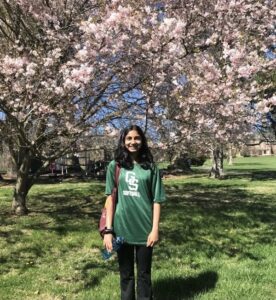 Irvine, CA
Irvine, CA Feasterville-Trevose, PA
Feasterville-Trevose, PA New Hope, PA (Previously NYC)
New Hope, PA (Previously NYC) Richboro, PA
Richboro, PA Englewood, NJ
Englewood, NJ Ningbo, Zhejiang, China
Ningbo, Zhejiang, China Willingboro, NJ
Willingboro, NJ Yardley, PA
Yardley, PA Newtown, PA
Newtown, PA Holicong, PA
Holicong, PA Newtown, PA
Newtown, PA Hamilton, NJ
Hamilton, NJ Yardley, PA
Yardley, PA Lambertville, NJ
Lambertville, NJ Chongqing, China
Chongqing, China Pennington, NJ
Pennington, NJ Yardley, PA
Yardley, PA Bensalem, PA
Bensalem, PA Borgota, Colombia
Borgota, Colombia Newtown, PA
Newtown, PA Burlington, NJ
Burlington, NJ Langhorne, PA
Langhorne, PA Princeton, NJ
Princeton, NJ Langhorne, PA
Langhorne, PA New York City, NY
New York City, NY New Hope, PA
New Hope, PA St. Catharines, Ontario, Canada
St. Catharines, Ontario, Canada Providenciales, Turks and Caicos Islands
Providenciales, Turks and Caicos Islands Willingboro, NJ
Willingboro, NJ Princeton, NJ
Princeton, NJ
 Newark, NJ
Newark, NJ Trenton, NJ
Trenton, NJ Newtown, PA
Newtown, PA
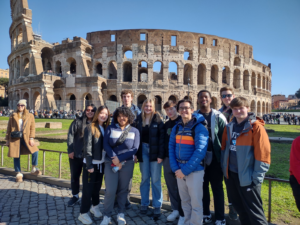
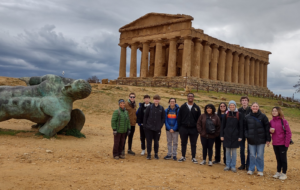

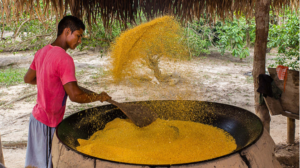


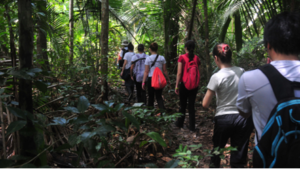
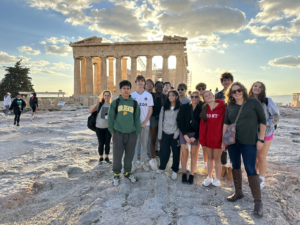



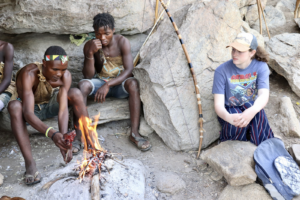
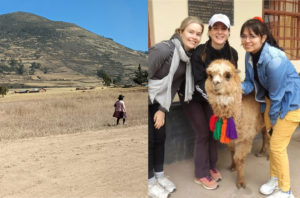

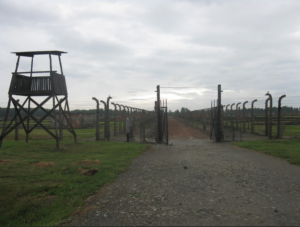
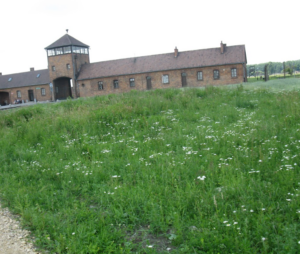
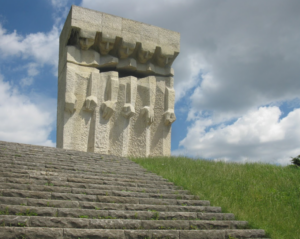

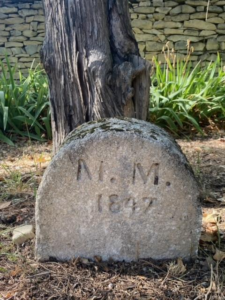
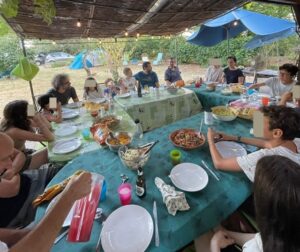


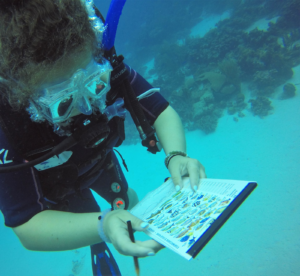

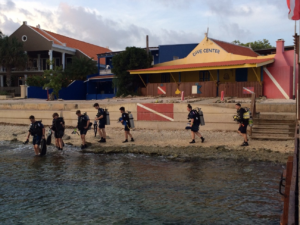
 Lawrence, NJ
Lawrence, NJ Seoul, South Korea
Seoul, South Korea
 Milwaukee, Wisconsin
Milwaukee, Wisconsin Pennington, NJ
Pennington, NJ Jenkintown, PA
Jenkintown, PA Ottsville, PA
Ottsville, PA Yardley, PA
Yardley, PA Providenciales, Turks and Caicos Islands
Providenciales, Turks and Caicos Islands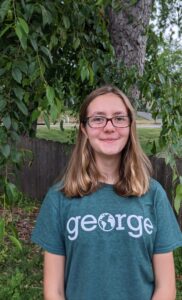 Hopewell, NJ
Hopewell, NJ
 Pottstown, PA
Pottstown, PA Playa del Carmen, Quintana Roo, México
Playa del Carmen, Quintana Roo, México Shanghai, China
Shanghai, China Beijing, China
Beijing, China Yardley, PA
Yardley, PA Beijing, China
Beijing, China Holland, PA
Holland, PA Langhorne, PA
Langhorne, PA Ringoes, NJ
Ringoes, NJ New Hope, PA
New Hope, PA Dreshner, PA
Dreshner, PA Yardley, PA
Yardley, PA Yardley, PA
Yardley, PA PA
PA

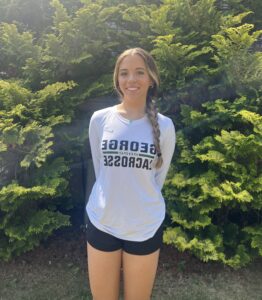
 Xi’an, China
Xi’an, China





